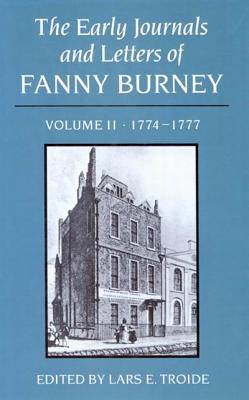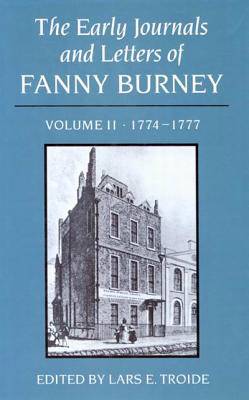
- Afhalen na 1 uur in een winkel met voorraad
- Gratis thuislevering in België vanaf € 30
- Ruim aanbod met 7 miljoen producten
- Afhalen na 1 uur in een winkel met voorraad
- Gratis thuislevering in België vanaf € 30
- Ruim aanbod met 7 miljoen producten
Zoeken
The Early Journals and Letters of Fanny Burney: Volume II, 1774-1777
Lars E Troide
€ 254,45
+ 508 punten
Omschrijving
The years 1774-77 saw Fanny Burney's increasing occupation with Evelina, which she finally completed and presented to the publisher Thomas Lowndes. Like her novel, the journals and letters of this period reveal her artistic powers, as she continues to sketch characters with economy and precision and create convincing narratives out of the events of her life. Among the more memorable figures she meets at her father's London house are the "noble savage" Omai, the first Tahitian brought back to England; the famed explorer James "Abyssinian" Bruce, who returned from Africa with tales of natives who ate raw flesh; and Prince Aleksei Orlov of Russia, who had Czar Peter III murdered in order to permit Peter's wife, Catherine "the Great," to ascend the throne. Other notable figures include Dr Samuel Johnson and the great singer Lucrezia Agujari, admired by Mozart. Also in these pages, the usually diffident Miss Burney takes charge of her destiny by rebuffing her suitor Thomas Barlow, who has wealth, education, good looks, and the vehement approval of most of her family, but whom she finds a total bore. The journals and letters of Fanny Burney are an invaluable source for anyone interested in the social and literary history of late eighteenth- and early nineteenth-century England. Lars Troide has supported the texts with thorough and detailed annotations.
Specificaties
Betrokkenen
- Auteur(s):
- Uitgeverij:
Inhoud
- Aantal bladzijden:
- 550
- Taal:
- Engels
- Reeks:
Eigenschappen
- Productcode (EAN):
- 9780773505391
- Verschijningsdatum:
- 1/02/1991
- Uitvoering:
- Hardcover
- Formaat:
- Genaaid
- Afmetingen:
- 145 mm x 221 mm
- Gewicht:
- 521 g

Alleen bij Standaard Boekhandel
+ 508 punten op je klantenkaart van Standaard Boekhandel
Beoordelingen
We publiceren alleen reviews die voldoen aan de voorwaarden voor reviews. Bekijk onze voorwaarden voor reviews.











